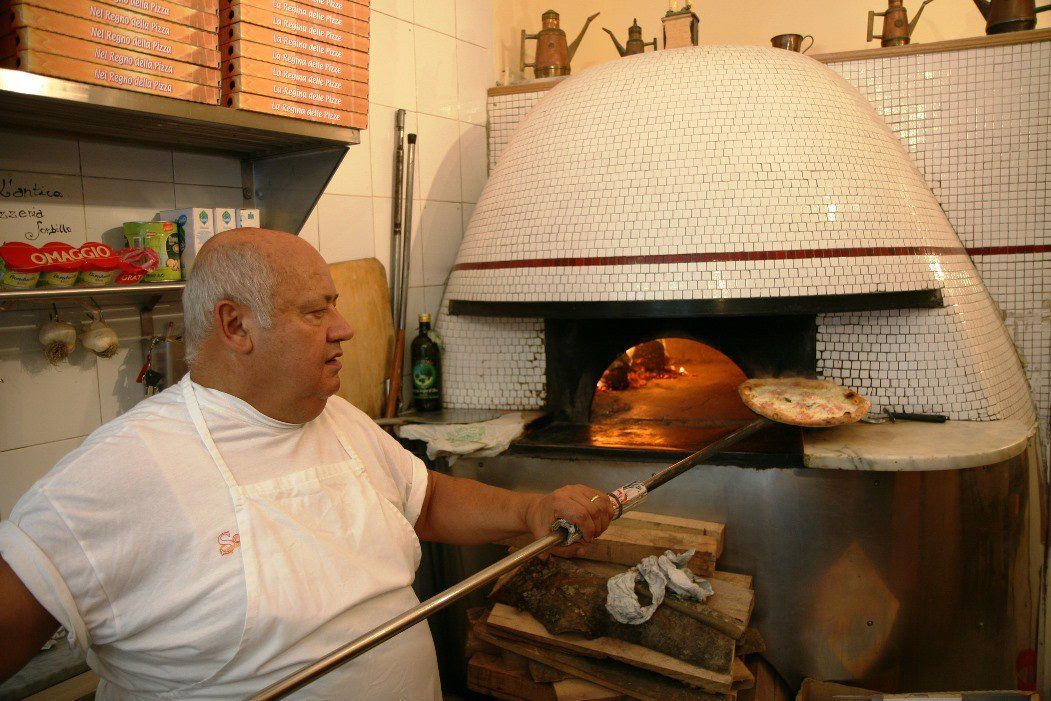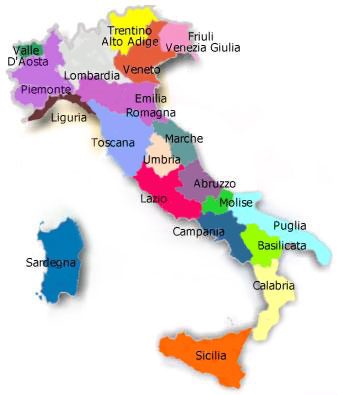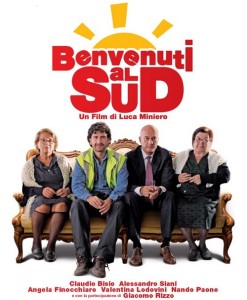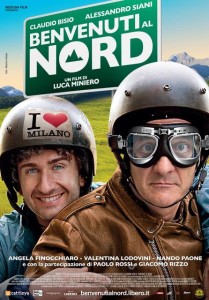How Did Regional Differences Contribute to Continued Divisions in Italy After Unification
(*Update* Due to a bit of "controversy" over this post, I now feel compelled to make the following disclaimer. The purpose of my blog is to inform and entertain. In no way do I endorse the stereotypes which are presented below but in any case I think it's useful to identify them if our goal is to undo them. Indeed, I did not invent them myself, but have learned about them by speaking with Italian friends and acquaintances. Please read this article in the jovial spirit in which it was written, and I apologize to anyone who takes offense with some of the content, as that is clearly not my intention. However, beyond this disclaimer, I have decided to otherwise leave the article in its original form. Grazie.)

We all have our preconceived images of Italy and Italians, usually based on what we've seen in movies and TV programs. If I say "Italian person" what image comes immediately to your mind? You might visualize the good old "pizzaiolo" with his Italian flag apron and big black mustache who sings "'O Sole Mio" while sliding another pizza pie into the oven.
Or you might picture Don Vito Corleone sitting behind his desk on his daughter's wedding day, granting "favors" to friends and business associates. In any case, you will have plenty of stereotypical examples to choose from, most of which have over-represented only Southern Italians—and not in a positive or realistic way.
It's a common misconception among foreigners that Italy is more or less a culturally unified country with a homogeneous population. This is absolutely untrue, especially when you compare Italy to the much larger United States where the language, food, and social protocols are basically identical from coast to coast.
In Italy, you can make the first general distinction simply by dividing the North from the South. I've heard it said that in the North, the citizens are hard-working, prosperous…and maybe a little boring. Meanwhile, the Southerners are loud, lazy, and devoutly religious. True? Well…
"For every church in Rome, there's a bank in Milan."
Or so goes the old saying, just before the Roman jumps up and says, "Those polentoni in Milan, they don't know how to live! All they care about is making money!" Then the Milanese, if he's following the stereotypical script, will retort, "Those lazy Romans, they never want to work! They just want to eat, drink, and waste time…and avoid paying their taxes!"

Well, who knows if these snapshots are still accurate (if they ever were)? Certainly not me, the straniero, who is just too fascinated by the whole country to recognize the distinction between the two "extremes." To me, they're all Italian. But then again, when we look a little closer, some differences appear, even to the foreign eye.
North versus South
Shall we draw an imaginary horizontal line just north of Rome and make some general observations about regional differences in Italy? It sounds like I'd be setting myself up to be the target of more scorn, since this is a hot topic and almost everyone has his or her strong opinions. (Umberto Bossi, are you reading this?) I'm sure I'll be vilified and called all sorts of names. Great—let's get into it then!
- In the North, the only thing colder than the weather is the temperament of the people. While in the South, they heat up faster than a microwave oven.
- In Torino, they let pedestrians cross the street without fearing for their lives. In Napoli, they put an imaginary target on their chests and step on the accelerator.
- In the North they produce cars. In the South, they steal them.
- In Bolzano, you might hear somebody wish you, "Guten Tag," while in the center of Palermo the streets signs are written in both Italian and Arabic.
- In the North, you're considered punctual if you arrive within 5-10 minutes of the appointment time. In the South, you're considered punctual if you arrive on the same day.
La Famiglia
What about our vision of the big, loud family, complete with the old nonna dressed in black who makes the sign of the cross while simultaneously rubbing her good luck charm every time that one of her nipotini sneezes? South only? Could be. But the truth is that family roots and origins are indeed still valued throughout the country. It doesn't really matter which part of the country you come from; if you're Italian you can be 100% sure that whatever you do, your family will always stand behind you.

This might be part of the reason for which Italians are considered "mammoni" by the rest of the world, which outside of Italy, sounds like an insult. Call someone a "Mamma's Boy" in Texas and you'll get punched in the face before you can finish the sentence. Among Italians, it can even sound like a compliment. It means that you revere your own mother "only" a degree less than Mother Mary herself—and for that you should be highly respected.
Specific Italian Stereotypes
OK, enough generalities. Let's get down to some specific insults. In the Southern U.S. we have a comedian named Jeff Foxworthy who made his entire career by applying the following formula to his fellow southerners:
You might be a redneck if…
Examples: You might be a redneck if… You refer to the fifth grade as "my senior year." You might be a redneck if… At a party, you introduce everyone to your wife and sister—and there's only one woman with you. Etcetera.
Borrowing this scheme and applying it to Italians, we can highlight a few regional differences in Italy that foreigners might not be aware of.
You might be Veneto if… you drink like a sailor starting at 8:00 a.m. every day. They are probably the only ones that drink a caffè corretto (coffee with liquor, usually grappa) in the morning. They blame it on the cold. I guess I would, too.
You might be Friulano if… in your region it "pluv simpri" (piove sempre; always rains) and everyone south of you is a "terrone."
You might be Napoletano if… a red light is seen as an invitation to step on the gas, and a helmet is only useful at the soccer stadium (OR per compiere scippi; purse-snatching). In fact, in Napoli they've outlawed the use of the casco because they don't want the street criminals to disguise themselves this way.
You might be Romagnolo if…you believe that Karl Marx had some pretty clever ideas.
You might be Piemontese if… you are false and courteous. Meaning falsely courteous.
You might be Ligurian if… you are very tirchio (cheap/stingy) with your money.
You might be Toscano if… at least every third word is a "moccolo" (a type of profanity; moccolo in Tuscan dialect, "bestemmia" in Italian—an insult or blasphemy addressed directly to God.) Or as the saying goes, "Maledetti Toscani, con l'inferno in bocca e il paradiso nelle mani." ("Those damn Tuscans, with hell (profanity) in their mouths and heaven (artisan skills) in their hands.")
You might be Sicilian if… you have at least one relative in the Mafia. It also means that you are omertoso, meaning that you don't talk to the authorities, especially when it comes to denouncing offenses.
A few more? Why not!
Calabrians: People from Calabria are considered mistrustful and stubborn and keen to flaunt their assets.

Milanese: People from Milan are known for being arrogant, cold, and efficient workers.
Romans: two adjectives are often attributed to people from Rome: noisy and "burini" ("cafoni" in Italian; or boorish/rough/uncouth in English)
Sardinians: They are said to be proud farmers and stubborn as their mules—and they don't like "foreigners." Which is to say other Italians.
Regional Differences in Italy
Well, that's all that I have to say about it from a foreigner's perspective. But there's a more serious (negative) side of this conversation, too, which involves separatism, racism, fascism, and several other types of isms. However, I'm not sure that I'm the person to introduce this subject. Italiani, would any of you care to speak up on this?
A slightly more positive spin on this topic is the idea of campanilismo. I say "slightly" because even this admirable sense of hometown pride has its downside. It maintains feelings of being Roman, Florentine, or Venetian…and inhibits feelings of being Italian. (Except every four years during the World Cup.)
At this point you might be forgiven for wondering if Italy, as a country, suffers from an acute case of multiple personality disorder. One thing's for sure: you can never get bored with Italians. When you think you're among a homogeneous group of "Italian" friends, have a little fun with them. During a polite dinner conversation, just throw out a sentence that raises one of the following questions: "Which region has the best food?" or "What's the best soccer team in Italy?" or "Which political party do you support?" And then stand back (at a safe distance) and watch the fireworks!
Source: https://rickzullo.com/regional-differences-in-italy/
0 Response to "How Did Regional Differences Contribute to Continued Divisions in Italy After Unification"
Post a Comment